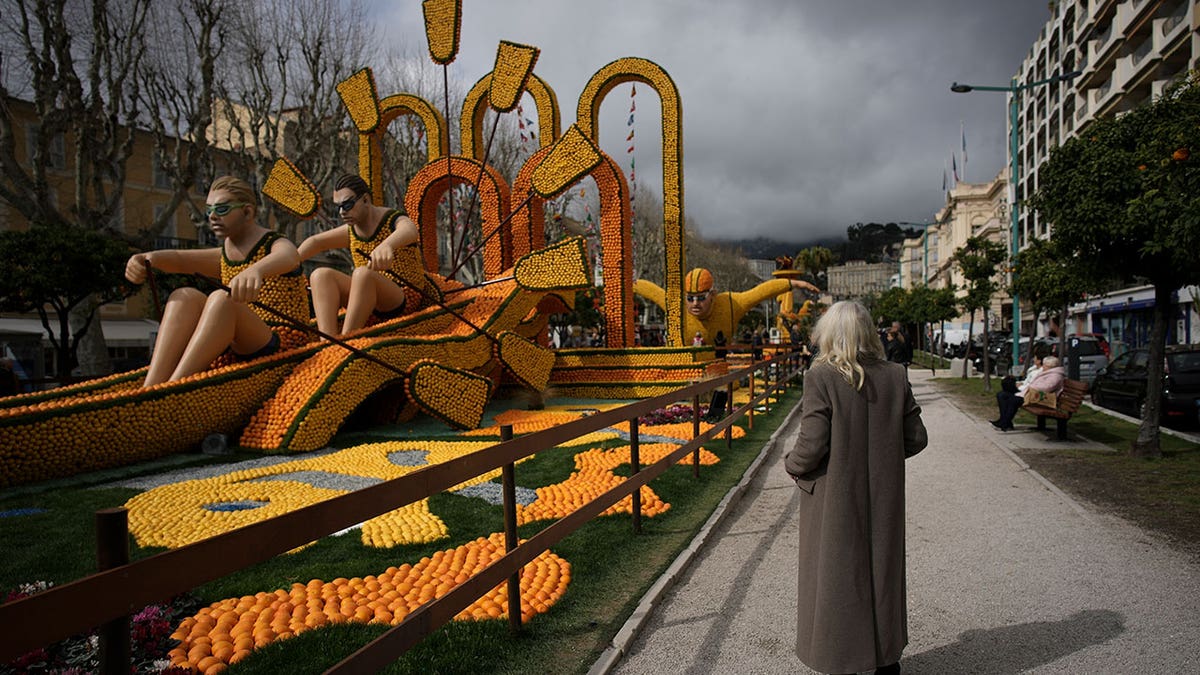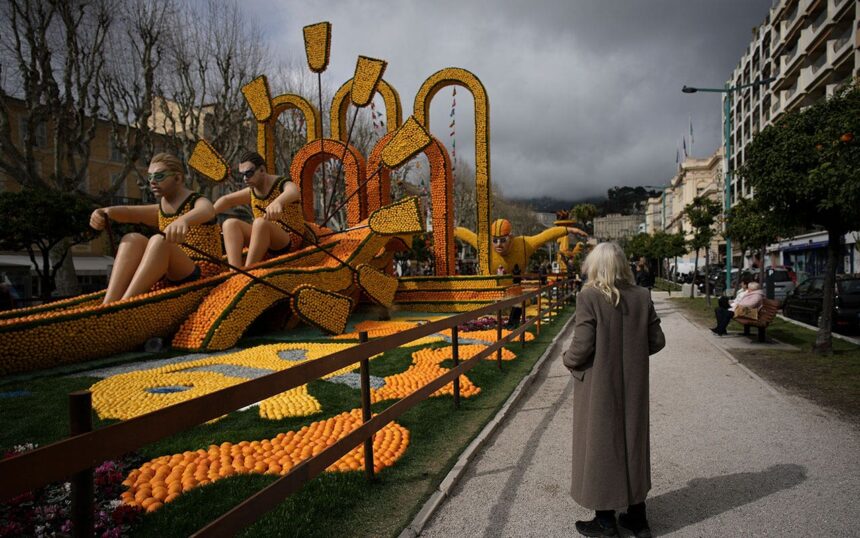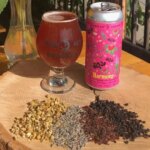- The French lemon pageant gathers over 140 tons of citrus for elaborate floats and shows, however none of it’s the prized Menton lemon as a consequence of shortage.
- Menton was as soon as a distinguished lemon-growing area in Europe, however elements comparable to tourism led to the decline of lemon orchards.
- Solely 56 small producers now develop Menton lemons, dealing with challenges comparable to land improvement and local weather change.
When the French Riviera city of Menton prepares to host its lemon pageant every year, it assembles greater than 140 tons of citrus to construct the ornate floats and showy park shows that entice hundreds to the Fete du Citron. However none of it’s the precise Menton lemon, a prized selection whose followers included King Louis XIV, who loved consuming its juice and bathing in its important oils.
They’re too valuable — and there aren’t sufficient of them, both.
“Truthfully, we favor that individuals style our lemons relatively than have a look at them on show,” stated Marine Krenc, an occasions supervisor for Menton’s tourism workplace.
NEW ORLEANS JAZZ FEST TO FEATURE VIBRANT CULTURAL SHOWCASE AND CULINARY DELIGHTS
Menton was as soon as a number one lemon-growing area in Europe, with a world popularity and exports so far as the USA and Russia within the 18th century. However that was earlier than the French Revolution led to cancellation of legal guidelines that protected Menton from competitors from different lemon-growing areas, and earlier than the Riviera’s rise as a playground for vacationers and the rich led to motels and villas steadily displacing orchards and farmland.

A customer examines a sculpture manufactured from lemons throughout the ninetieth version of the Lemon Competition on March 1, 2024, in Menton, France. (AP Photograph/Daniel Cole)
Today, solely 56 small producers nonetheless develop the high-end lemons, and a few fear {that a} warming local weather will add to their challenges in coming years.
When Pierre Ciabaud, a sixth-generation lemon-grower, was searching for a job that might help a household within the Nineteen Sixties, he needed to break with household custom. He arrange a {hardware} and equipment retailer to make ends meet. Now retired, he tends the household’s grove on one of many final remaining lemon hills overlooking town of Menton and its built-up Mediterranean coast dotted with non-public swimming swimming pools.
“The valleys of Menton was once coated with lemon groves, there have been bushes in all places,” Ciabaud stated. Now, he stated, “The land is offered to builders and all you see are buildings.”
He remembers his father gathering a ton and a half of lemons each 20 days. The area’s annual manufacturing now could be about 200 tons.
“An adolescent as we speak wouldn’t be capable of dwell from lemon farming,” Ciabaud stated.
The area nestles between the French southern Alps and the Mediterranean Sea, protecting about 247 acres and stretching past Menton’s municipal boundaries into Roquebrune, Sainte-Agnès and Castellar. The gentle local weather — from a protecting mountain vary, proximity to the ocean and regular sunshine with average rain throughout winter months — and sandstone-rich soil give the Menton lemon its distinct taste: acidic, however neither bitter nor candy, and with a lemongrass scent in its zest. They’re greater than most lemons, with a thicker pores and skin.
In the course of the lemon pageant, guests to La Casetta, a city-owned orchard, have been handled to a style of the Menton lemon by a caretaker who handed out slices. One lady took her slice, inhaled its scent for a protracted second, then took a chunk earlier than handing it to a companion.
Krenc calls it “our caviar.” Mauro Colagreco, a celeb chef who operates a three-Michelin-star restaurant, Le Mirazur, in Menton, has praised it and options it in fish dishes and desserts.
The Menton lemon obtained a lift in 2015 when the European Union granted it the safety of a geographical indicator, which aids in advertising and marketing the lemons and is meant to protect in opposition to lesser varieties misusing the identify. It is the one lemon in France to hold such an indicator.
CLICK HERE TO GET THE FOX NEWS APP
Laurent Gannac has been rising lemons for 30 years, since he first moved to the area as a landscaper. He began from scratch on an uncultivated plot of about 6 acres, and spent years clearing and terracing the land, planting 400 bushes and organising an irrigation system.
He stated he has benefited from the geographical indicator, however each he and Ciabaud fear about local weather change. This a part of France has endured three years of drought, and seen rising temperatures and scrambling of seasons, although it hasn’t but harm the lemon crop. Snowmelt from the mountains has helped to this point.
However farmers must adapt to rising temperature in the event that they need to proceed producing the lemons, he stated.
“Our objective for the Menton lemons is that they land on a plate, in a restaurant, or in a connoisseur jam for choose prospects,” Gannac stated.







